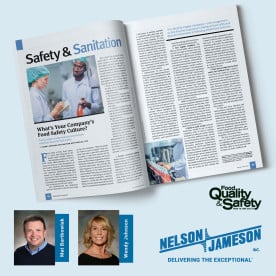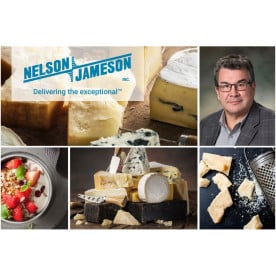Monthly Archives: April 2021
- April 22, 2021
Happy Earth Day! This widely observed holiday is the perfect time to look back on the past year and reflect on each of our personal carbon footprints. How have we impacted climate change, global warming, and sustainability? I would say this last year the carbon footprint has been reduced compared to previous years due to the pandemic, especially in the earlier half of the year. Not only is this a time to reflect on our personal lives, but also on businesses nationwide. Nelson-Jameson has been doing our part of minimizing our carbon footprint by offering many eco-friendly products. From biodegradable gloves and paper products, to antibiotic test kits, and even turbidity sensors, we have the eco-friendly products needed to help reduce excess waste throughout any processing facility.
- April 07, 2021
Ah, the beauty and purity of a new cleaning tool. Freshly removed from any packaging, and unsullied by the elements: nothing but possibility ahead of it. Whether you enjoy opening new tools as much as I apparently do, or you are more in the “pop it open, because there is a ton of stuff to do” camp, there are a few tips that our friends from Remco have provided to get the best out of your new cleaning tool. These simple steps help to ensure safety before the first use.
How to Prepare a New Cleaning Tool for Use
New cleaning tools—especially those sealed in plastic pouches like the ones from Vikan® and Remco—often look like they’re ready for use right out





